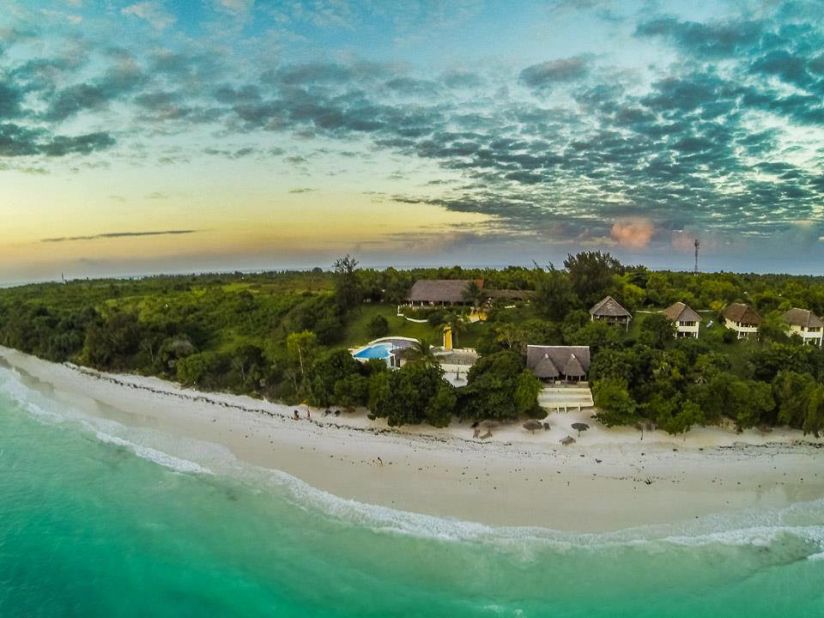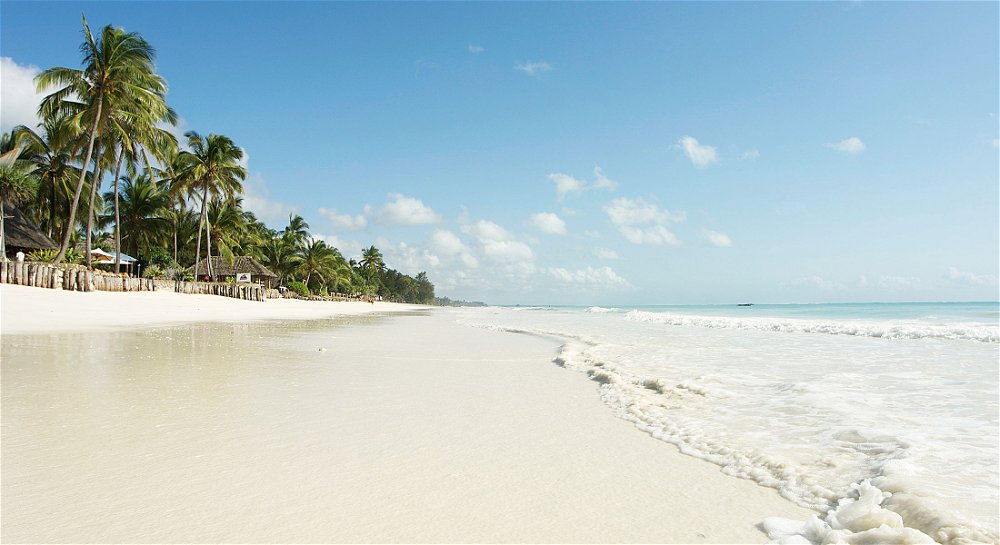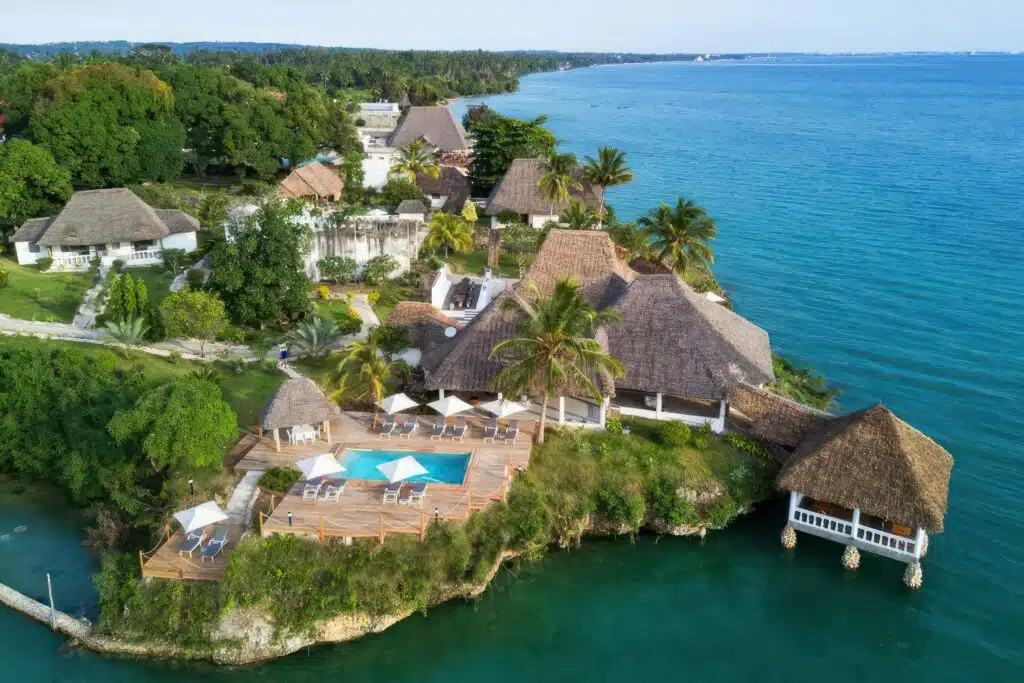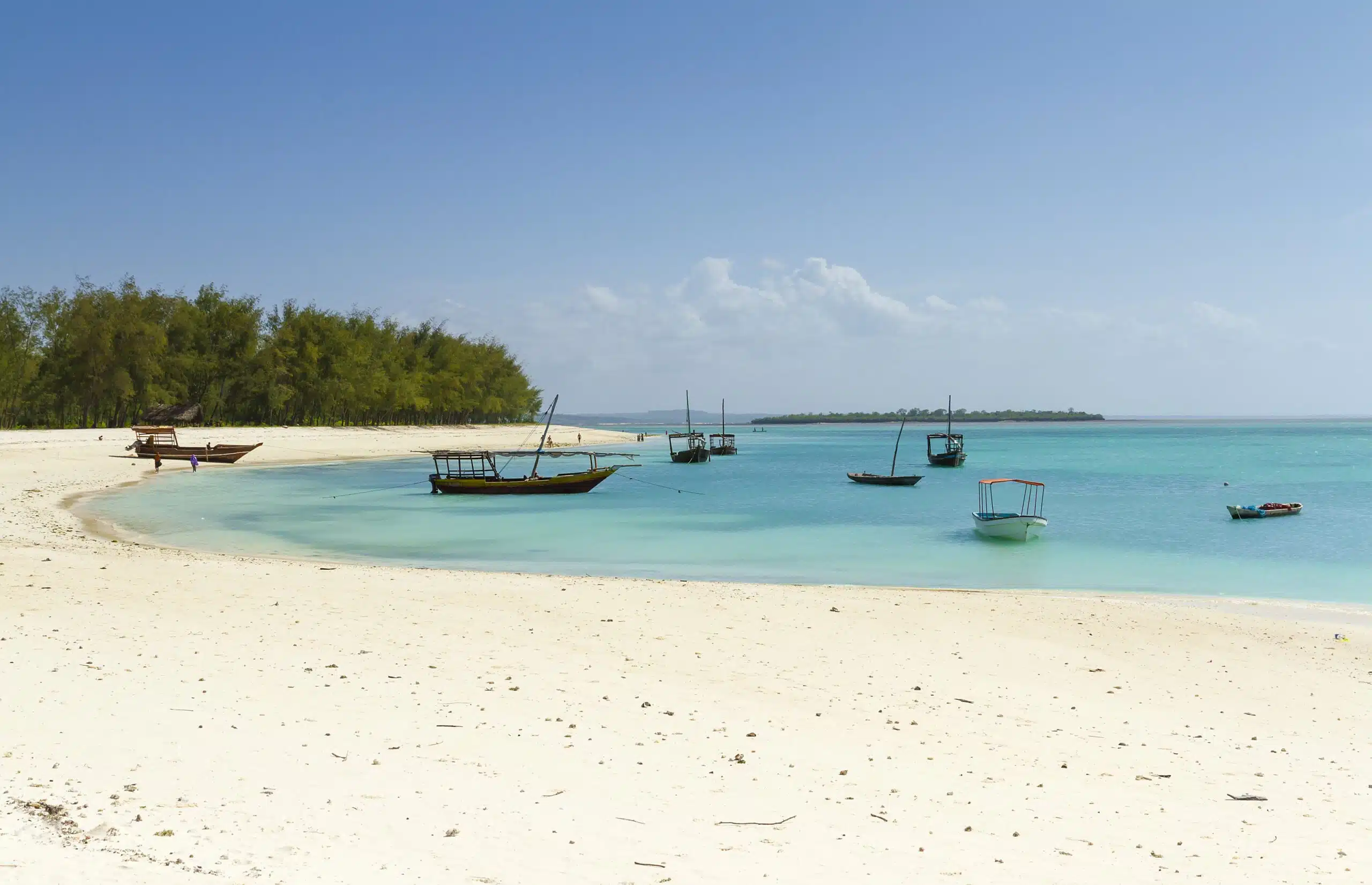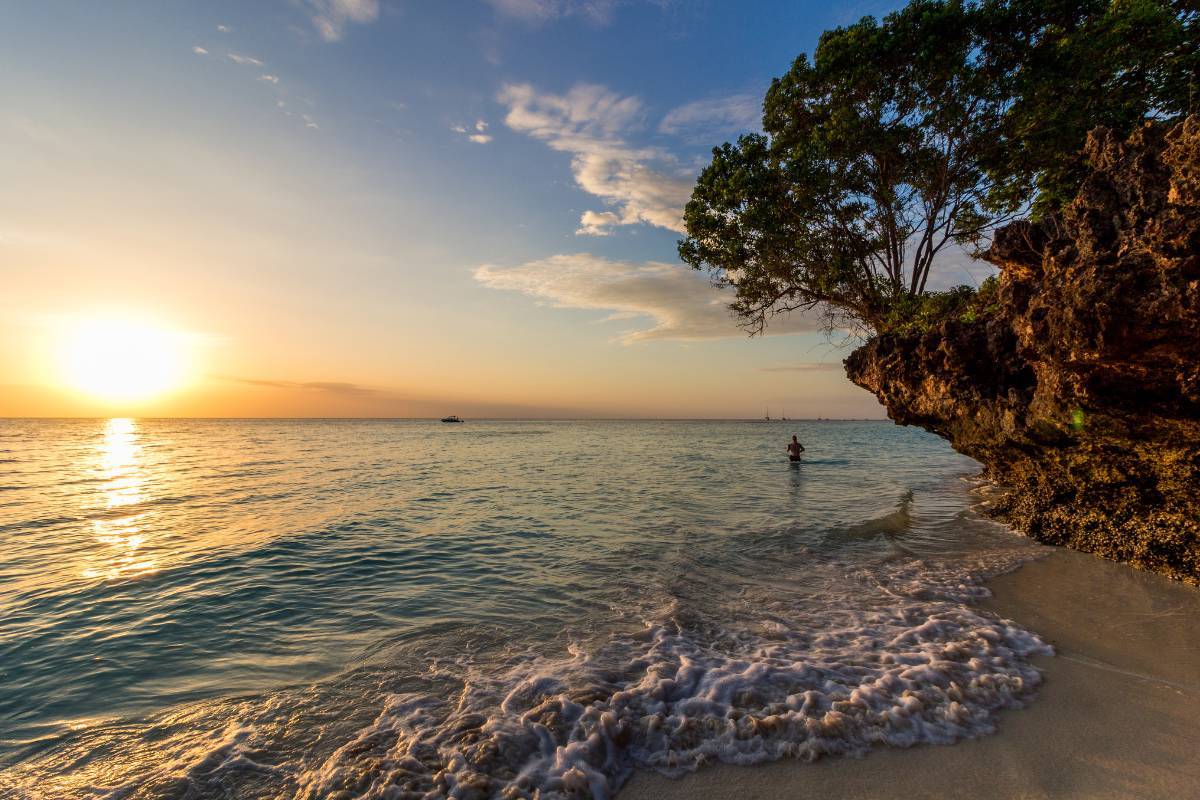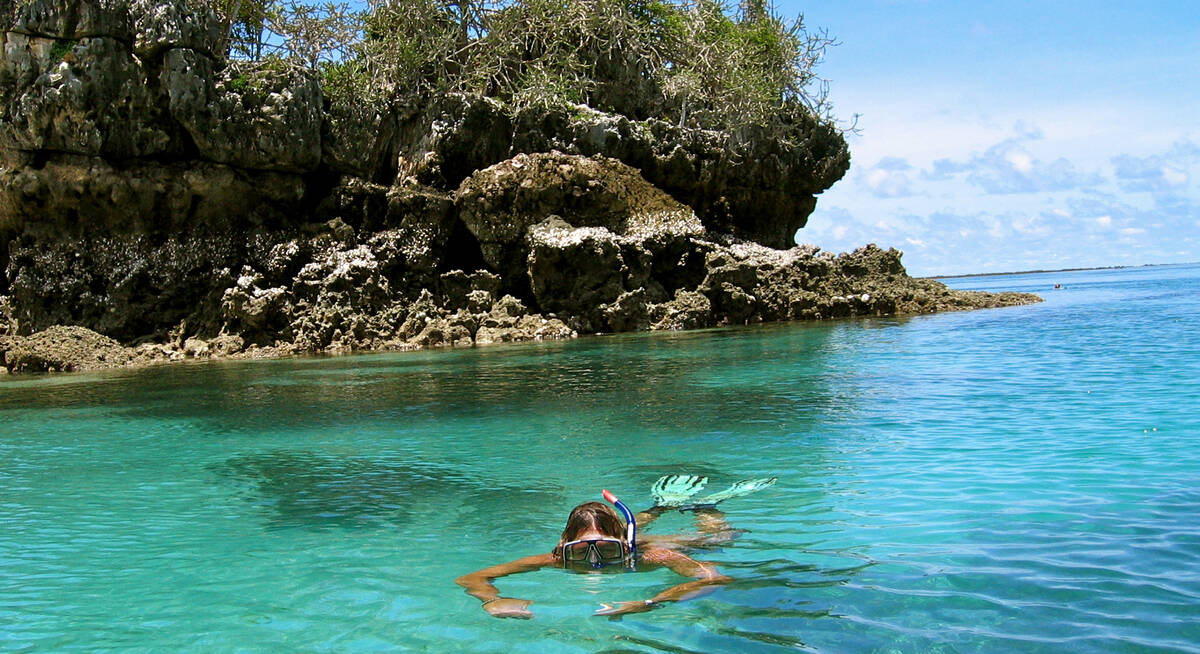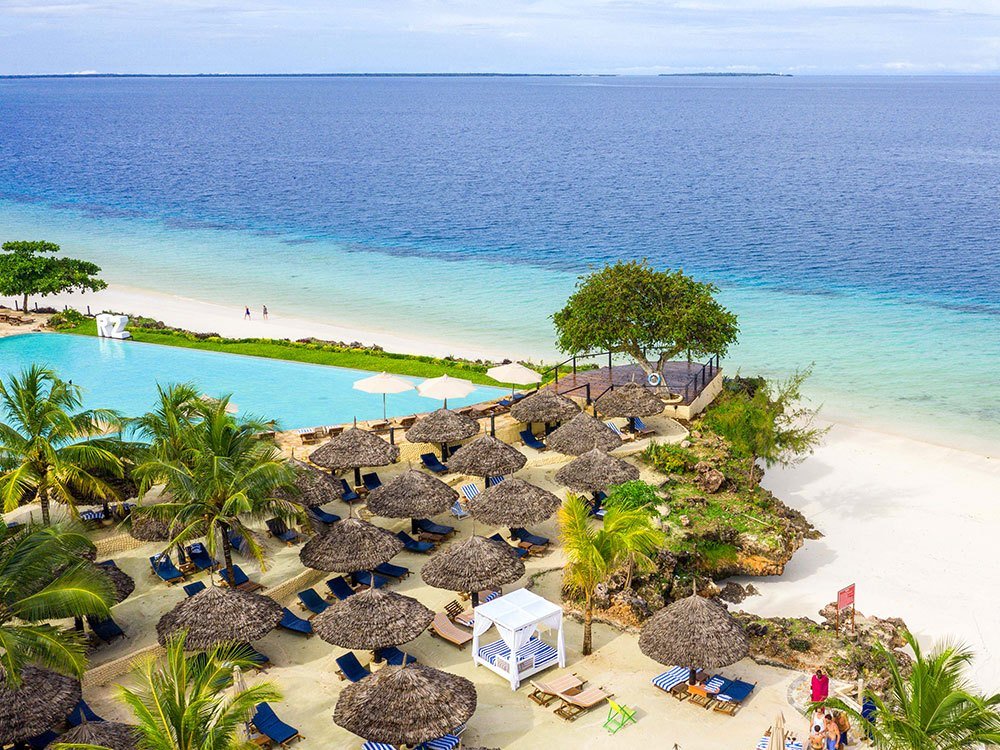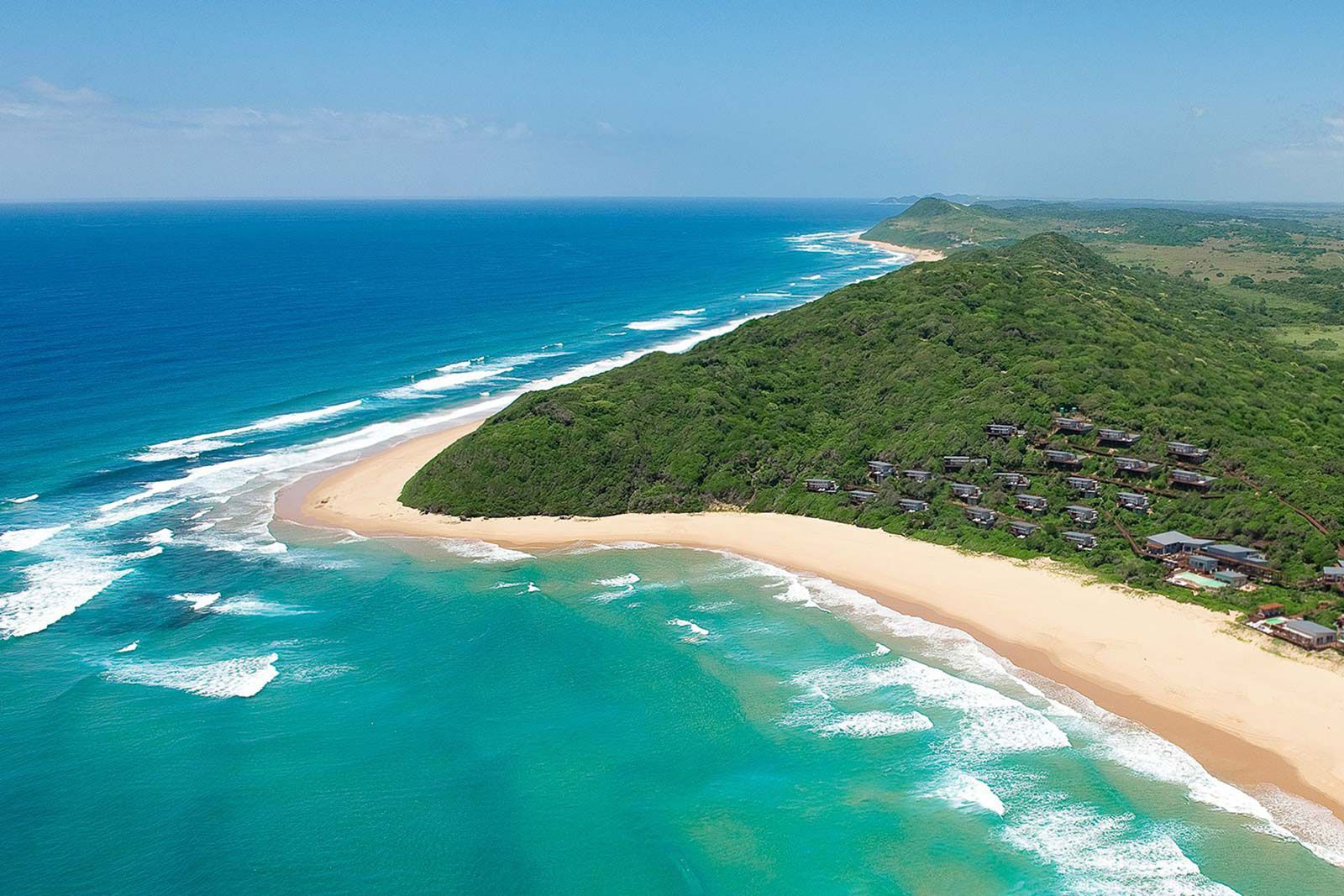Views Of Zanzibar Archipelago
About
location:
Off the coast of mainland, Tanzania
The Zanzibar Archipelago, located off the coast of Tanzania in East Africa, is made up of several islands, with the main ones being Unguja and Pemba. Zanzibar is known for its rich history, culture, and stunning natural beauty, making it a popular tourist destination.
Unguja, also known as Zanzibar Island, is the largest and most populous island in the archipelago. It is famous for its beautiful white sandy beaches, turquoise waters, and diverse marine life, making it a paradise for beach lovers and water sports enthusiasts. It's also home to the capital, Stone Town.
Stone Town is a historic port city with narrow streets, bustling markets, and beautiful architecture. It's a great place to explore on foot, and you can spend hours getting lost in its winding alleys.
Pemba Island, located to the north of Unguja, is known for its lush landscapes, spice plantations, and remote beaches. Pemba is less developed than Unguja, offering a more off-the-beaten-path experience for visitors looking to explore a quieter side of Zanzibar.
Mafia Island, another island in the archipelago, is also a great place to explore, with its stunning coral reefs, diverse marine life, and remote villages.
The Zanzibar Archipelago has a rich history influenced by Arab, Persian, Indian, and European cultures, resulting in a unique blend of architecture, cuisine, and traditions. The islands are renowned for their spices, including cloves, cinnamon, and nutmeg, which have played a significant role in their economy and cultural heritage.
In conclusion, the Zanzibar Archipelago offers a mix of stunning natural beauty, fascinating history, and vibrant culture, making it a must-visit destination for travelers looking to experience the best of East Africa.
Things to know before travelling to Zanzibar Archipelago
This article is a tip of the iceberg but will equip you with the "Absolute Need to Knows" for Zanzibar archipelago.
How to get there?
To get to the Zanzibar Archipelago in Tanzania, you can typically fly into Abeid Amani Karume International Airport, also known as Zanzibar International Airport, which is located on Unguja Island, the main island of the archipelago.
There are direct flights to Zanzibar from major cities in East Africa such as Nairobi, Dar es Salaam, and Addis Ababa, as well as international flights from destinations in Europe and the Middle East.
Once you arrive at Zanzibar International Airport, you can take a taxi, shuttle, or private transfer to your accommodation or desired destination on Unguja Island. If you are traveling to one of the other islands in the archipelago, such as Pemba Island, you can take a domestic flight, ferry, or speedboat from Unguja Island.
About the weather
The weather in the Zanzibar Archipelago is warm and tropical year-round. The average temperature ranges from the high 70s to the mid-80s Fahrenheit. The hottest months are December to March, with temperatures reaching up to around 30°C (86°F), while the coolest months are June to October, with temperatures around 25°C (77°F).
The islands experience two main seasons: the dry season and the wet season. The dry season usually occurs from June to October, with little to no rainfall and lower humidity levels. The wet season, from November to May, sees more rainfall, particularly in the form of short, heavy downpours. However, even during the rainy season, there are still plenty of sunny days and warm temperatures.
The archipelago is also affected by the Indian Ocean monsoon winds, which bring rain and humidity during the wet season. Overall, Zanzibar's weather is characterized by warm temperatures, plenty of sunshine, and occasional showers.
Medical matters that affect your visit.
When visiting the Zanzibar archipelago in Tanzania, there are several medical considerations to keep in mind to ensure a safe and healthy trip. Some medical matters that may affect your visit to Zanzibar include:
Vaccinations
It is recommended to be up-to-date on routine vaccinations such as measles-mumps-rubella (MMR) vaccine, diphtheria-tetanus-pertussis vaccine, varicella (chickenpox) vaccine, polio vaccine, and a yearly flu shot. Additionally, vaccinations for hepatitis A, typhoid, and yellow fever may be needed depending on your specific travel plans and medical history.
Malaria
Malaria is a concern in Zanzibar, so it is important to take appropriate antimalarial medication before, during, and after your trip. It is also crucial to take preventive measures such as using insect repellent, sleeping under mosquito nets, and wearing long sleeves and pants to avoid mosquito bites.
Travelers Diarrhea
Like in many travel destinations, the risk of traveler's diarrhea is present in Zanzibar. To reduce the risk, make sure to drink only bottled or purified water, avoid consuming raw or undercooked food, and practice good hygiene such as washing hands frequently.
Sun Protection
Zanzibar is a tropical destination with strong sunlight, so it is important to protect yourself from sunburns and heat-related illnesses. Remember to use sunscreen with a high SPF, wear sun-protective clothing, stay hydrated, and seek shade during peak sun hours.
Water-borne Diseases
Contaminated water is a common source of gastrointestinal infections in Zanzibar. To prevent waterborne illnesses, avoid drinking untreated water, including tap water, and opt for bottled water or water that has been boiled or treated.
Heat-related Illnesses
The heat and humidity in Zanzibar can lead to heat exhaustion or heatstroke, especially if you are not acclimated to such weather conditions. Stay hydrated, avoid prolonged exposure to direct sunlight, and seek shade or air-conditioned spaces when needed.
These are some of the key medical matters to consider when planning a visit to the Zanzibar archipelago. It is essential to consult with a healthcare provider or travel medicine specialist well in advance of your trip to get personalized recommendations based on your health status and travel itinerary.
Cultural Etiquettes at Zanzibar Archipelago
Zanzibar has a rich cultural heritage influenced by Arab, Persian, Indian, and African traditions. When visiting Zanzibar, it is important to be aware of and respect the local cultural etiquettes. Here are some key cultural etiquettes to keep in mind:
Greetings are very important in Zanzibari culture. When meeting someone, it is customary to say "Jambo" (hello) or "Habari" (how are you?), followed by "nzuri" (fine) or "salama" (safe) in response. Handshakes are common, especially between men, but be aware that some women may prefer not to shake hands with men.
Zanzibar is a predominantly Muslim community, so it is important to dress modestly, especially when visiting mosques or rural areas. Women should cover their shoulders and knees, and men should avoid wearing shorts in public places.
Elders are highly respected in Zanzibar. It is important to show respect to elders by greeting them first, using respectful language, and listening attentively when they speak.
When invited to someone's home for a meal, it is polite to wash your hands before and after eating. It is also common to eat with your right hand, as the left hand is considered unclean.
Public displays of affection are considered inappropriate in Zanzibar, so it is best to refrain from kissing or hugging in public.
When visiting mosques or other religious sites, remember to dress modestly and remove your shoes before entering. Women should cover their heads with a scarf.
Always ask for permission before taking photos of people, especially in rural areas, as some may believe that photographs can capture their soul. Finally, Be mindful of local customs and traditions, and be open to learning about and experiencing the local way of life.
By observing these cultural etiquettes, you can show respect for the local customs and traditions of the people of the Zanzibar archipelago and make your visit a more enriching and enjoyable experience.
Language and communication at Zanzibar Archipelago
The official language of the Zanzibar Archipelago is Swahili, but many people on the islands also speak English. English is widely used in hotels, restaurants, and other tourist areas. In more remote areas, however, Swahili may be the only language spoken.
If you're planning on visiting the Zanzibar Archipelago, it's a good idea to learn some basic Swahili phrases, such as "Jambo" (hello), "Hakuna matata" (no worries), and "Asante" (thank you). Even if you don't speak the language fluently, a few basic phrases can go a long way in showing respect and making a connection with the local people.
Body language is also an important part of communication in the Zanzibar Archipelago. It's common to nod your head and make eye contact when speaking to someone. And be sure to avoid pointing, as it's considered rude.
Safety Precautions at Zanzibar Archipelago
The Zanzibar Archipelago is generally considered to be a safe place to visit, but as with any travel destination, it's important to exercise caution and use common sense.
Violent crime is rare, but petty theft and pickpocketing can be a problem, especially in tourist areas. It's best to keep your belongings close to you at all times, and don't leave your valuables unattended.
Vital Information On Money Matters
When it comes to money matters in the Zanzibar Archipelago, the local currency is the Tanzanian shilling (TZS). The US dollar is also widely accepted, especially in hotels and tourist areas. There are ATMs available on Zanzibar Island and in Pemba Island, but they are not always reliable, so it's a good idea to bring enough cash to cover your expenses.
Most major credit cards are accepted in hotels and some restaurants, but smaller businesses may only accept cash. When getting cash, be sure to check the currency conversion rate and exchange rate before you go.
Another important thing to know about money matters in the Zanzibar Archipelago is that bargaining is common, especially at markets and small businesses. It's part of the culture to negotiate prices, so don't be afraid to haggle a bit. However, be respectful and don't try to haggle too aggressively.
Bargaining should be done in a friendly and polite manner. Tipping is not mandatory, but it's always appreciated, especially for guides and drivers. A 10-15% tip is customary. And be sure to have small bills on hand, as change can be difficult to come by.
You can now enjoy your time in this beautiful and unique destination without worrying about money-related issues. Just remember to stay safe, be respectful, and have fun!
Fun Things To Do At Zanzibar Archipelago
Here are some fun things to do at the Zanzibar Archipelago:
Beach Hopping
Zanzibar is known for its beautiful white sandy beaches and crystal-clear waters. Enjoy sunbathing, swimming, and water sports like snorkeling and diving at popular beaches like Nungwi, Kendwa, and Paje.
Stone town exploration
Take a stroll through the narrow streets of Stone Town, a UNESCO World Heritage Site known for its unique Swahili architecture, bustling markets, historic buildings, and cultural attractions like the House of Wonders and the Old Fort.
Spice tour
Zanzibar is often referred to as the "Spice Island" due to its rich history of spice production. Join a guided spice tour to learn about and sample exotic spices like cloves, cinnamon, nutmeg, and vanilla.
Jozani Forest visit
Explore the Jozani Chwaka Bay National Park to see the rare red colobus monkeys, indigenous to Zanzibar. The park also features diverse flora and fauna, including mangroves and bird species.
Prison Island excursion
Take a boat trip to Prison Island (Changuu Island) to visit the giant Aldabra tortoises and enjoy swimming and snorkeling in the surrounding waters.
Sunset dhow cruise
Experience a romantic sunset cruise aboard a traditional dhow boat, complete with stunning views of the coastline, delicious seafood dinner, and live music or entertainment.
Kite surfing and Wind surfing
Head to locations like Paje Beach, which offer ideal conditions for kite surfing and windsurfing enthusiasts to enjoy the thrill of gliding over the waves with the help of strong winds.
Safari Blue excursion
Embark on a full-day sailing trip to the Menai Bay Conservation Area with Safari Blue, where you can snorkel, swim with dolphins, feast on a delicious seafood barbecue, and relax on deserted sandbanks.
Local Culture experience
Immerse yourself in the local culture by attending a traditional Swahili music or dance performance, visiting local markets, or participating in a cooking class to learn how to prepare authentic Zanzibari dishes.
Relaxation and Wellness
Treat yourself to a relaxing spa treatment, yoga session on the beach, or meditation retreat to unwind and rejuvenate amidst the tranquil surroundings of the Zanzibar Archipelago.
These are just a few of the fun and enriching activities you can enjoy during your visit to the Zanzibar Archipelago. Make sure to plan your itinerary according to your interests and preferences to make the most of your time on this beautiful island destination.
Who Can Travel To Zanzibar Archipelago?
The Zanzibar Archipelago is open to visitors from all over the world. All you need is a valid passport and, if necessary, a visa. US citizens do not need a visa to visit the Zanzibar Archipelago, as long as their stay is less than 90 days.
Citizens of most other countries can get a tourist visa on arrival, but be sure to check with your local embassy or consulate before you travel. Children under the age of 16 are allowed to visit the Zanzibar Archipelago, but they must be accompanied by an adult.
Travel Documents
You will need a valid passport and visa to enter Tanzania. Make sure your passport is valid for at least six months after your travel date and check if you need to obtain a visa before traveling.
What time of the year is best to visit?
The best time to visit the Zanzibar Archipelago is from June to September, when the weather is dry and sunny, and the sea is calm and clear. This is also the peak season for tourism, so prices will be higher and hotels will be more crowded.
If you're looking for a more off-season experience, consider visiting from October to December or March to May. During these months, the weather is a bit more unpredictable, but prices are lower and there are fewer crowds.
Packing Essentials For Your Trip
Here is a list of packing essentials for a trip to the Zanzibar archipelago:
Lightweight clothing
Pack light, breathable clothing such as shorts, t-shirts, and sundresses. Make sure to include swimwear, as you'll be spending time on the beautiful beaches of Zanzibar.
Sun protection
Bring sunscreen with a high SPF, sunglasses, a wide-brimmed hat, and a cover-up to protect yourself from the strong tropical sun.
Insect repellent
Zanzibar is known for mosquitoes, so pack insect repellent to protect yourself from mosquito bites.
Comfortable footwear
Bring comfortable sandals or flip-flops for the beach and walking shoes for exploring the island.
Medications
Pack any necessary medications, including anti-malarial drugs if recommended by your healthcare provider.
Travel adapters and chargers
Make sure to pack the appropriate adapters and chargers for your electronic devices to ensure you stay connected during your trip.
Travel documents
Don't forget to bring your passport, travel insurance information, flight tickets, and any other necessary travel documents.
Reusable water bottle
Stay hydrated by bringing a reusable water bottle to fill up with clean water throughout your trip.
Cash and credit cards
While major credit cards are accepted in most tourist areas, it's a good idea to have some cash on hand for smaller purchases.
Daypack or beachbag
Bring a small daypack or beach bag to carry your essentials when exploring the island or spending time at the beach.
Remember to pack light and practical items to ensure a comfortable and enjoyable trip to the Zanzibar archipelago.
view map
Book Flight ticket
If this widget is not showing try reloading the page
The flight search result will be provided in a new tab
Zanzibar international airport will be a good destination if you are coming from outside Tanzania
Book Hotel
If this widget is not showing try reloading the page
The hotel search result will be provided in a new tab
Input Zanzibar island as the city name to search and compare hotel prices
You can book tours at hotels upon arrival.
